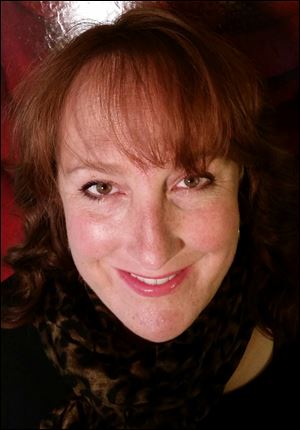
EDITORIAL
Big-money politics threatens our democracy
For democracy to work, the speech of the average person cannot be shouted down by the ultrawealthy
7/8/2014
Turcer
AS AMERICANS celebrated the birth of our Republic last weekend, I reflected on the force that is most strongly pushing our representative democracy to the brink of extinction: the obscene amount of special-interest money pouring into our electoral process from a handful of multimillionaires and corporations.
Money influencing government is not a new phenomenon, but in many ways it’s more insidious and sophisticated than ever before. In the early years of the Republic, Thomas Jefferson warned that “the end of democracy ... will occur when government falls into the hands of ... moneyed corporations.” A century later, Theodore Roosevelt led the charge to prohibit the use of corporate funds for political purposes.
Yet today, our electoral process has become ever more dependent on the moneyed interests from whom Presidents Jefferson and Roosevelt tried to protect our democracy. That’s no accident: This Supreme Court has paved the way for this outcome by repeatedly equating money with free speech.
Money finances the broad dissemination of ideas through political ads and mailings. But as former Justice John Paul Stevens said: “Money is property; it is not speech.”
When money is equated with free speech, the First Amendment right of the person with $5 does not have the same protection as the right of one with $500, or more pointedly, the one with $5 million. There is no mention of money in the First Amendment and no mention of corporations.
Ohio voters are acutely aware of the increasing sums that are flooding our elections as a result of the Supreme Court’s decisions. Remember the constant barrage of negative ads funded by big-money super-political action committees and shadowy nonprofit groups during the 2012 presidential campaign?
Our recent elections for U.S. Senate have been equally distressing. In 2012, outside groups spent nearly $40 million — the third most in the country — to influence the outcome of Ohio’s Senate race.
This money overwhelmingly bankrolled attack ads; 95 percent of these groups’ paid TV ads were negative. Voters often did not know who was paying for the ads; the identities of the funders of $15 million in outside spending were not publicly disclosed.
This is no way to run a democracy. As Ohioans have seen, elections that are dominated by the very wealthy can drown out alternative ideas and challengers.
It is time for us to guard the First Amendment rights of all Americans to be heard in our elections. For democracy to work, the speech of the average person cannot be shouted down by the ultrawealthy and powerful.
An amendment to the U.S. Constitution proposed by U.S. Sen. Tom Udall (D., N.M.) would help ensure that. Despite opponents’ hyperbolic claims, the amendment would not allow government to regulate ideas or impede our ability to express opinions.
To the contrary, it would prevent individuals and corporations from using millions of dollars to ensure that their interests come first in the political process, ahead of the interests and the needs of the rest of us. This measure would restore the First Amendment to its original understanding and principle: to protect the speech of all Americans, not just the ultrarich.
The limitations in the amendment would establish boundaries, and ensure that the U.S. government is not for sale. Critics contend that the amendment would harm the wealthy and insist that such people have the right to donate as much as they want. But by separating speech from the dollar, the amendment will create a more functional, vibrant democracy.
As both a target and a recipient of the special-interest money that is overwhelming our elections, U.S. Sen. Rob Portman (R., Ohio) should understand better than most how toxic our elections have become. By cosponsoring and voting for the proposed constitutional amendment this summer, he would make the most of a once-in-a-lifetime opportunity to leave Congress better than he found it.
Catherine Turcer is policy analyst for Common Cause Ohio.